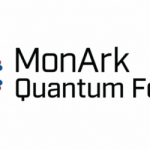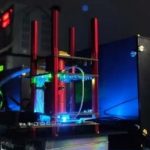NSF Announces $25M Institute in Chicago for Quantum Biology Research

(UChicago.edu) The National Science Foundation will establish a $25 million institute in Chicago to investigate quantum sensing for biology and train the quantum workforce. Headquartered at the University of Chicago and in partnership with Chicago State University, the University of Illinois at Chicago and Harvard University, the institute will be funded for five years.
The goals of the Quantum Leap Challenge Institute for Quantum Sensing for Biophysics and Bioengineering (QuBBE) are twofold: to pioneer new ways to use quantum technology in biology, and to develop the quantum workforce through STEM education and outreach.
“This institute is designed specifically to foster cross-disciplinary collaborations that are not incremental, but rather paradigm-shifting,” said Greg Engel, professor of chemistry at the University of Chicago and the new institute’s director. “It’s rapidly becoming clear that quantum sensing could be transformative in the next phases of biology research, and Chicago is perfectly positioned as a home for that future, with a nexus of academic institutions, national laboratories, industries and a growing quantum workforce.”
The institute joins a growing hub of quantum research and industry in the Chicago area, including two U.S. Department of Energy quantum centers led by UChicago-affiliated Argonne National Laboratory and Fermilab, UChicago’s Pritzker School of Molecular Engineering, the Chicago Quantum Exchange, quantum startup accelerator Duality, and multiple tech incubators and startup companies.
“The field of quantum technology is at a crossroads, and this is a unique opportunity for our students to be in on the ground floor of a new and growing industry,” said Valerie Goss, associate professor of chemistry, in the department of chemistry, physics and engineering studies at Chicago State University. “This collaboration will open doors for both students and faculty across disciplines to build networks, develop fundamental research, and share resources and opportunities between our universities.”
A centerpiece of the program is pairing students with both academic and industry partners—an approach designed to prepare students for success in the workforce and also to speed the process from scientific discovery to implementation.



















